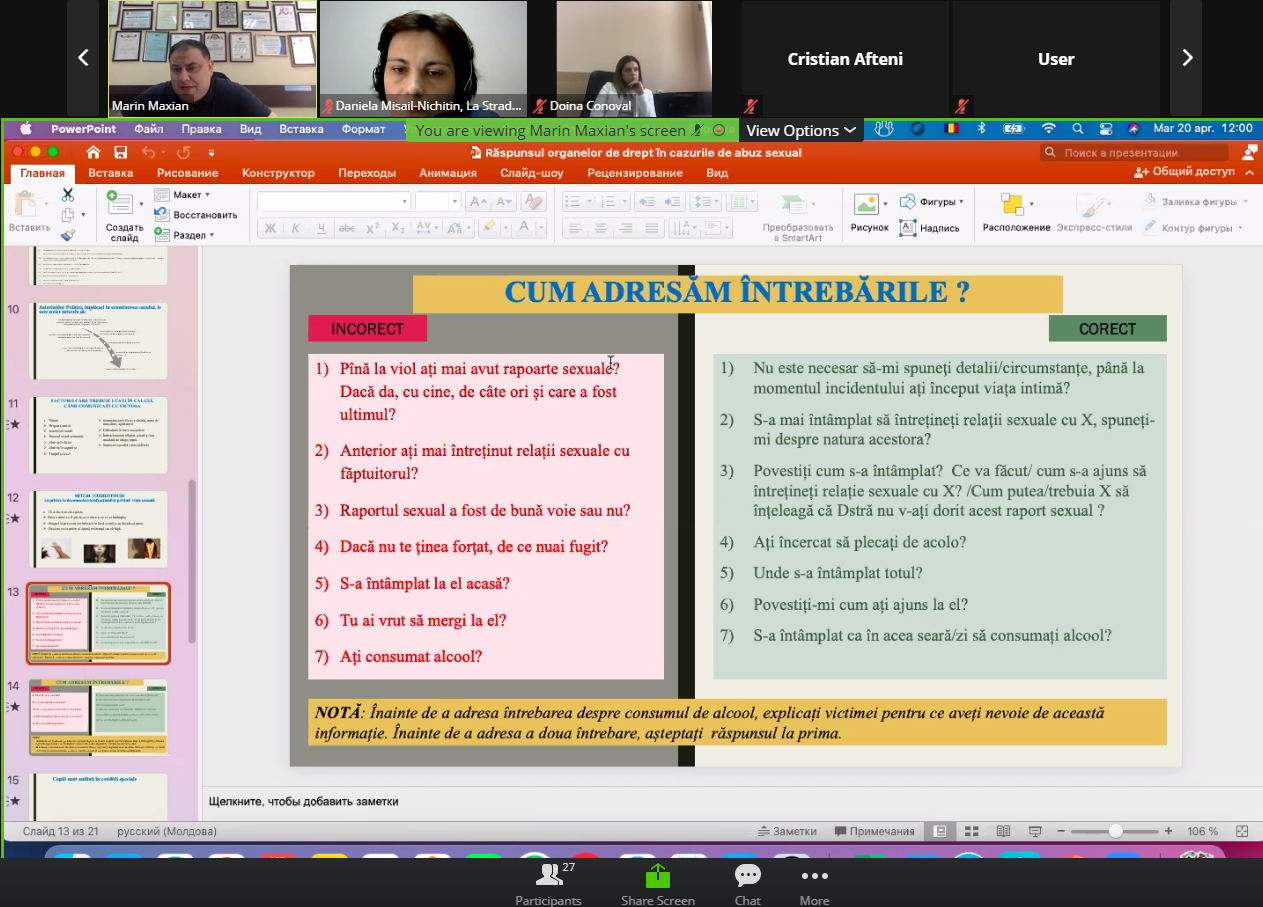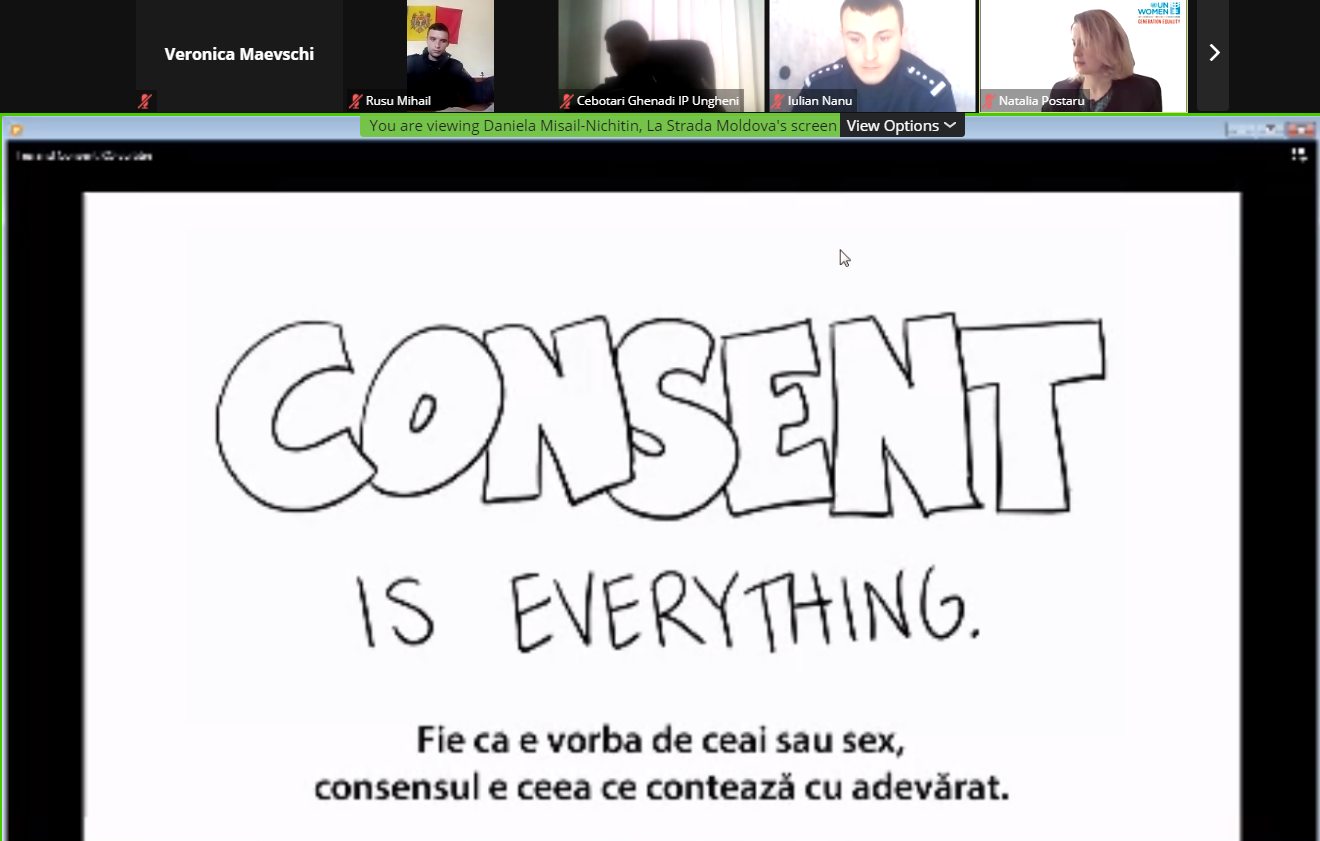Training for the organization of a coordinated response to cases of sexual violence
We are currently in the middle of carrying out the training seminars for a group of professionals involved in the investigation of crimes and organization of a coordinated response to cases of sexual violence.
The focus of these trainings is human rights and victim interaction, especially women and children.
Over 20 police officers, prosecutors, management representatives of the police inspectorates from the Cahul and Ungheni districts are guided and informed about the principles of offering a coordinated high-quality response to cases of sexual violence.
The participants to the seminars appreciate the fact that they can discuss the particularities of the investigation and documentation of sexual crimes with experts in the field of forensic medicine, human rights and with law enforcement representatives. Several aspects of the subjects were approached, from myths and realities about sexual violence in our community, to the rules and principles of the collaborative working of all actors involved in the response to cases of sexual violence.
Often, when we are faced with a victim of rape, our first consideration is how to investigate the case so we can effectively identify the most relevant proof, so we can hold the offender accountable. When, in fact, within the first minutes of the dialogue the police officer or the criminal investigation officer should ask about the state of the victim – what victims need, how they are feeling, if they feel up to giving a statement in general. This is the approach that our trainers have tried to promote during the training seminars, an approach focusing on the victim’s trauma.
Our experts repeatedly reminded the fact that a person who went through sexual violence needs to be believed, so that they feel a correct attitude from law enforcement body, they need to be explained what their rights are. Only after that, and after ensuring that the victim has been assisted by a psychologist and lawyer if needed, and only if the victim is outside any danger and not under any health risk, the investigation process can be started.
The trainings are organized by International Center ‘La Strada’ within the project EVA ‘Promoting gender equality in the Cahul and Ungheni districts’, financed by European Union and implemented by UN Women in partnership with UNICEF, as per the Collaboration Agreement with UN Women (United Nations Entity for Gender Equality and Women's Empowerment). The views and opinions expressed here belong to the authors and don’t necessarily reflect the point of view of UN Women, UNICEF, or the European Union.



